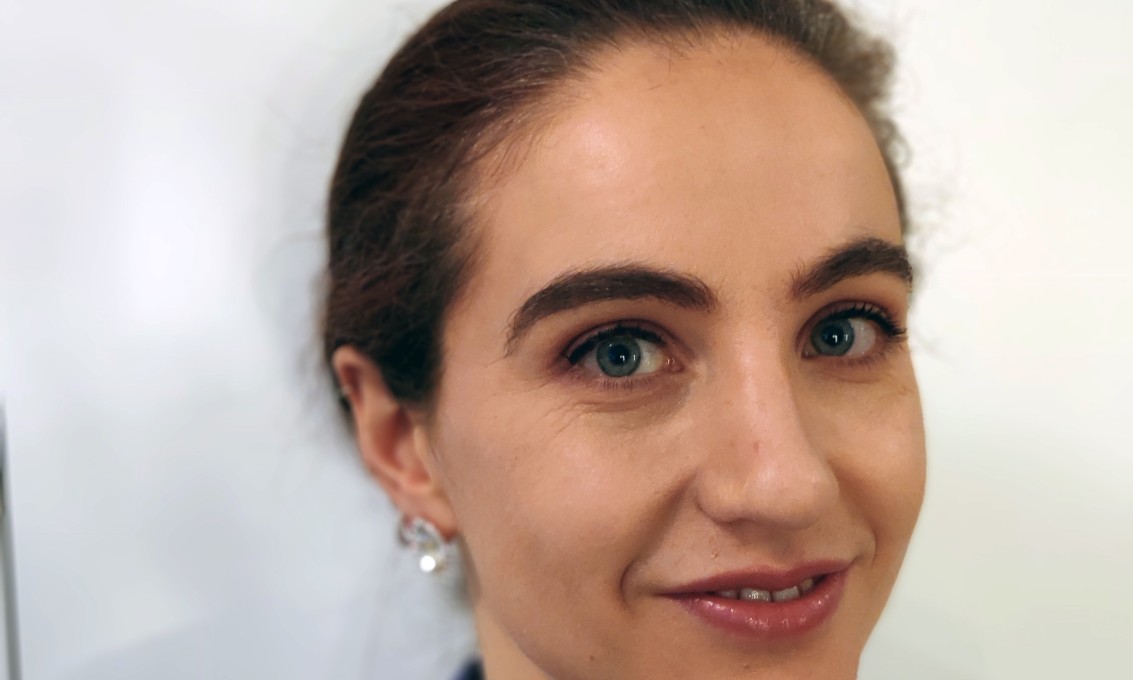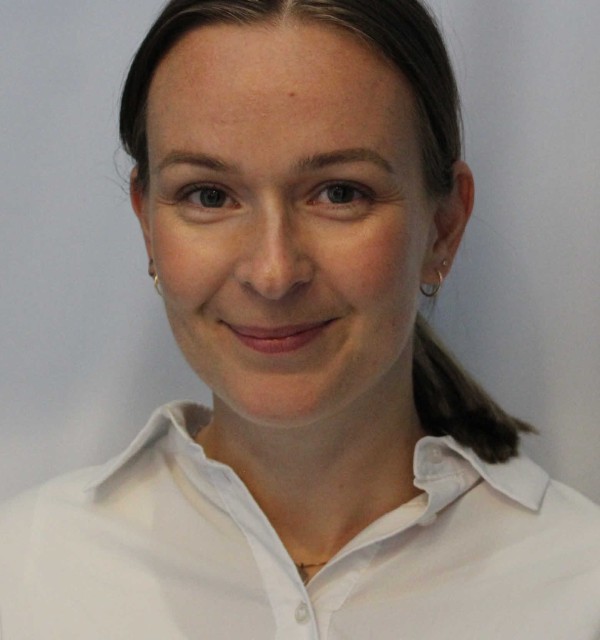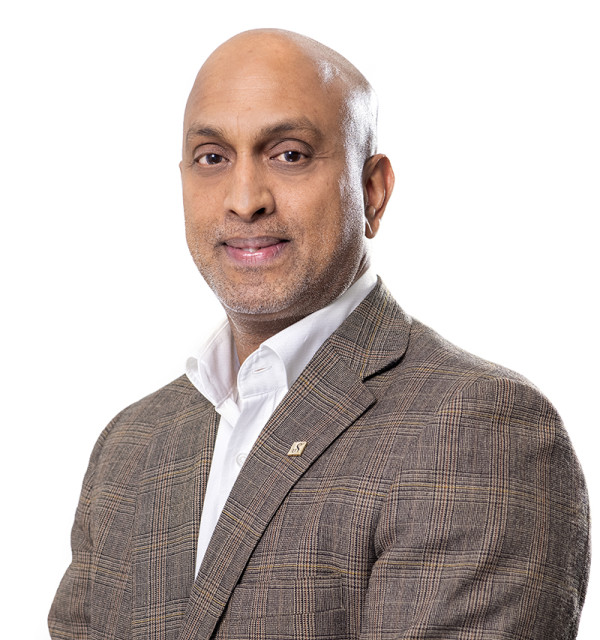Industrial Asset Management gives a modern practical twist to your technical education. This programme strengthens your professional expertise combining technical engineering, operational, and management disciplines that are highly requested by various industrial and public sectors.
2 years (4 semesters)
English
120
August every year

About the study programme
This programme levels up your Bachelor’s degree with practical insights and knowledge about technical engineering, operational, and managerial aspects related to modern industrial assets.
- The term "asset" includes, industrial plants and facilities, energy production and distribution systems, manufacturing and processing, industrial systems and technical equipment. It also includes industrial processes, civil structures and infrastructure, transportation systems, medical and health care systems, both in public and private sectors.
- Industrial Asset Management is a multidisciplinary study programme. The knowledge that you acquire can be used in offshore industry, energy sector, land-based production and process industry, technical infrastructure, transport, health, and many other industrial sectors.
- In this programme students work with projects and issues that are directly taken from the public and private sector.
- This Master’s programme has a strong international profile with students from all over the world, and all courses are taught in English.
The programme has two specialisations:
This specialisation is open to students with a bachelor’s degree in engineering and qualifies for the additional title of “Sivilingeniør”.
The specialisation has a focus on further advancing your engineering qualifications with selected practically oriented disciplines.
In addition to common courses, the specialisation covers disciplines such as probability, reliability, data science, AI-based decisions, additive manufacturing and applied fluid dynamics.
This specialisation is relevant for students with different types of backgrounds (see Academic requirements for more information).
The specialisation has a focus on strengthening your technical qualifications with selected practically oriented disciplines.
In addition to common courses, the specialisation covers disciplines such as AI-based decisions, project risk, contracts, supply chain, energy and climate change and sustainability.
The programme has achieved top results amongst the students in the national study survey Studiebarometeret, initiated by the Ministry of Education and Research and conducted by the Norwegian Agency for Quality Assurance in Education (NOKUT).
Career prospects
This multi-disciplinary study programme qualifies the graduates for challenging careers in modern private industry and public organizations, where reliability and availability, operational safety and security, cost exposure, digitalization, societal impact, and environmental footprint play critical roles in terms of value creation and risk mitigation.
Since the core of the master programme consists of disciplines that are practically oriented, our graduate students can qualify for many attractive job positions in both the land-based and offshore industry, as well as in the public sector. The multi-disciplinary content of the study programme will also enable the students to resolve challenges at advanced engineering, operational, and managerial levels even outside their specialisation area in cooperation with experts from various other fields.
In general, the graduates will be well qualified towards many career opportunities in a range of organizations, inclusive of; facility/plant owners or operators, service and technology providers, engineering contractors, consultants, authorities, as well as public institutions who are involved in various types of industrial assets. The target sectors can include, for instance, energy production and distribution, manufacturing, civil structures and infrastructure, offshore systems and platforms, processing facilities, industrial and public services, transportation sector, medical services and health care, industrial technologies, supply chain and logistics, aviation, maritime, and a wide variety of other industries. Many will also have interesting job opportunities within research, education, or in the public sector devoted to control, regulation, policies, and law enforcement related to various industrial sectors.
A candidate with a completed master's degree in Industrial Asset Management with a minimum average grade of B for courses and a grade of A or B for Master thesis may qualify for admission to an engineering/technical PhD programme at the University of Stavanger.
Learning outcomes
All study programmes at the UiS have a set of defined learning targets. Read more about the learning outcome for this study programme.
After having completed the master programme in Industrial Asset Management, the student shall have acquired the following learning outcomes, in terms of knowledge, skills and general competences:
Knowledge
K1: The candidate has advanced and interdisciplinary knowledge within industrial assets in the public and private sectors.
K2: The candidate has thorough and relevant knowledge on advanced, complex, and integrated nature of modern industrial assets w.r.t. new challenges and opportunities
K3: The candidate has thorough and relevant knowledge related to issues within their chosen field of specialization within Industrial assets.
K4: The candidate has knowledge of engineering, operations, and management of industrial assets that can be used for analysis, development, and innovation in new areas of practical and/or theoretical importance.
K5: The candidate has the ability to analyse practical or academic problems related to industrial assets based on history, traditions, and industrial and societal needs.
Skills
S1: The candidate can analyse existing theories, methods, and interpretations related to industrial assets and work independently with general practical and theoretical problem solving.
S2: The candidate can independently identify, map, analyse and communicate challenging issues based on relevant theories, practices, and modern understanding within their chosen field of specialization in Industrial assets.
S3: The candidate can use relevant methods and knowledge for research and professional development in an independent manner.
S4: The candidate can analyse and relate critically to various sources of information and use them to structure and formulate practical and/or academic arguments related to engineering, operations, and management of industrial assets.
S5: The candidate may conduct an independent, limited research or development project under supervision and in accordance with current research ethical standards related to engineering, operational, and managerial aspects.
General Competence
G1: The candidate can analyse relevant practical, academic, and research ethical challenges and be eligible to participate in the development and implementation of new technologies, methods, and principles for industrial assets.
G2: The candidate can apply knowledge and skills in new areas to carry out advanced tasks and projects related to industrial assets.
G3: The candidate can communicate comprehensive work professionally and independently, and master terminology, language, and expressions related to industrial assets.
G4: The candidate can communicate professional issues, as well as analyses and conclusions in the field, both with specialists and the general public.
G5: The candidate can contribute to new thinking and innovation processes in advanced, complex, and integrated industrial assets in all life cycle phases.
Study plan and courses
Enrolment year: 2025
-
Compulsory courses
-
Condition Monitoring and Predictive Maintenance
Year 1, semester 1
Condition Monitoring and Predictive Maintenance (IAM540)
Study points: 10
-
Human-Technology-Operations-Organization, Industrial Vulnerabilities, and Resilience
Year 1, semester 1
Human-Technology-Operations-Organization, Industrial Vulnerabilities, and Resilience (IAM570)
Study points: 10
-
Smart Operations, Maintenance and Industrial Logistics
Year 1, semester 2
Smart Operations, Maintenance and Industrial Logistics (IAM510)
Study points: 10
-
Industrial Assets, Modern Uncertainties, and Performance Dynamics
Year 1, semester 2
Industrial Assets, Modern Uncertainties, and Performance Dynamics (IAM560)
Study points: 10
-
Master's Thesis in Industrial Asset Management
Year 2, semester 3
Master's Thesis in Industrial Asset Management (IAMMAS)
Study points: 30
-
Investment Analysis
Year 2, semester 3
-
Project Management
Year 2, semester 3
-
-
Specialization
-
Asset Engineering and Digitalisation Processes
-
Compulsory courses
-
Probability and Statistics 2
Year 1, semester 1
-
Reliability Analysis
Year 1, semester 2
-
-
Courses at UiS or exchange 3rd semester
-
Courses at UiS 3rd semester
-
Recommended courses 3rd semester
-
Introduction to Data Science
Year 2, semester 3
-
Practical Training in Industrial Asset Management
Year 2, semester 3
Practical Training in Industrial Asset Management (IAM680)
Study points: 10
-
Decision Analysis with Artificial Intelligence Support
Year 2, semester 3
Decision Analysis with Artificial Intelligence Support (MOD500)
Study points: 10
-
Energy, Energy Technologies, and Energy System Integration
Year 2, semester 3
Energy, Energy Technologies, and Energy System Integration (PET515)
Study points: 10
-
-
Other Relevant Electives 3rd semester
-
Life Extension of Structures
Year 2, semester 3
-
CAD/CAM and Additive Manufacturing
Year 2, semester 3
-
Applied Computational Fluid Dynamics for Industrial Processes
Year 2, semester 3
Applied Computational Fluid Dynamics for Industrial Processes (MSK600)
Study points: 5
-
Foundations of Risk Analysis and Risk Science
Year 2, semester 3
Foundations of Risk Analysis and Risk Science (RIS505)
Study points: 10
-
-
-
Exchange 3rd semester
-
Exchange Studies 3rd semester
-
-
-
-
Sustainable Assets and Smart Operations
-
Compulsory courses
-
Decision Analysis with Artificial Intelligence Support
Year 1, semester 1
Decision Analysis with Artificial Intelligence Support (MOD500)
Study points: 10
-
Project Cost Estimation and Risk Analysis
Year 1, semester 2
-
-
Courses at UiS or exchange 3rd semester
-
Courses at UiS 3rd semester
-
Recommended courses 3rd semester
-
Practical Training in Industrial Asset Management
Year 2, semester 3
Practical Training in Industrial Asset Management (IAM680)
Study points: 10
-
Contracts - Design and Management
Year 2, semester 3
-
Energy, Energy Technologies, and Energy System Integration
Year 2, semester 3
Energy, Energy Technologies, and Energy System Integration (PET515)
Study points: 10
-
Foundations of Risk Analysis and Risk Science
Year 2, semester 3
Foundations of Risk Analysis and Risk Science (RIS505)
Study points: 10
-
-
Other Relevant Electives 3rd semester
-
Societal Transition and Transformation - Energy and Climate Change
Year 2, semester 3
Societal Transition and Transformation - Energy and Climate Change (MEE100)
Study points: 10
-
Digitalisation for Sustainability
Year 2, semester 3
-
Supply Chain and Operations Management
Year 2, semester 3
-
-
-
Exchange 3rd semester
-
Exchange Studies 3rd semester
-
-
-
-
Academic requirements
Specialisation in Asset Engineering and Digitalisation Processes
A bachelor’s degree in any engineering discipline is required. Applicants must have the equivalent of 25 ECTS credits in mathematics, 5 ECTS credits in statistics and 7,5 ECTS credits in Physics.
It may be an advantage if the applicant has taken subjects related to engineering, technical and operational aspects of engineering facilities/systems and processes in the bachelor's degree and/or has relevant technical and operational industrial experience related to engineering systems and processes.
Specialisation in Sustainable Assets and Smart Operations
A bachelor's degree in a relevant field such as general engineering, projects and contracts, economics and business management, operations management, supply chain and logistics, construction and construction management, industrial production, industrial services, industrial technologies, and general management, as well as other social sciences and business-related disciplines. Applicants with other educational backgrounds will also be evaluated by the admissions committee.
Admission to this master's programme requires a minimum grade average comparable to a Norwegian C (according to ECTS Standards) in your bachelor's degree. Applicants with a result Second-class lower Division or lower are not qualified for admission.
Supplementary rules for admission (PDF)
A bachelor’s degree in any engineering discipline is required. Applicants must have the equivalent of 25 ECTS credits in mathematics, 5 ECTS credits in statistics and 7,5 ECTS credits in Physics.
It may be an advantage if the applicant has taken subjects related to engineering, technical and operational aspects of engineering facilities/systems and processes in the bachelor's degree and/or has relevant technical and operational industrial experience related to engineering systems and processes.
Admission to this master's programme requires a minimum grade average comparable to a Norwegian C (according to ECTS Standards) in your bachelor's degree. Applicants with a result Second-class lower Division or lower are not qualified for admission.
Application and admission
Contact
For inquiries regarding admission to international Master's programmes, send an email to: admissions@uis.no
Student life at UiS
More information about Industrial Asset Management
Student exchange
By going on exchange to one of our partner institutions abroad as part of your studies, you will have an opportunity to get a unique education. In addition to improving your career opportunities, you grow as a person and gain the ability to greater reflect on the topics you study as part of your degree.
Schedule for the exchange
Students can go on a study abroad experience during the 3rd semester of the master programme in Industrial Asset Management.
In general, this 3rd semester consists of 20 ECTS credits of electives. You must be able to find corresponding courses that matches the master program specialisation you have chosen, at the host university that you choose to go on an exchange. The courses you want to take abroad must be approved by the department. It is important that the subjects/courses from abroad do not overlap with subjects you have already taken. Some early advice is to think about your specialization and your fields of interest.
If you plan to stay the whole 3rd semester abroad and take a total of 30 ECTS, then you must choose at least one non-science/technology related course equivalent to 10 ECTS (e.g. economics, project management, societal issues, green transition, or similar).
The Master program in Industrial asset management has bi-lateral student exchange agreements to facilitate your study abroad experience with many well-recognized Universities to in Italy, The Netherlands, Spain, France, Germany, Finland, Sweden, and Australia.
More opportunities
In addition to the recommended universities listed below, UiS has several agreements with universities outside Europe that are applicable to all students at UiS, provided that they find a relevant subject offering. Within the Nordic and Baltic region, all students can use the Nordlys and Nordtek networks.
Contact your Study Adviser at the Faculty if you have questions about guidance and pre-approval of courses:
General questions about the exchange: Go to the exchange guide in the Digital student service desk
See where you can travel
Australia
Queensland University of Technology
Finland
Lappeenranta University of Technology
Finland
Tampere University
Frankrike
Ecole centrale de Nantes
Italia
Politecnico di Milano University
Nederland
Delft University of Technology
Spania
Polytechnic University of Catalonia
Sverige
Luleå tekniska universitet
Tyskland
RWTH Aachen University
Tyskland
SRH University Berlin
Frequently asked questions
Why should I choose UiS?
This study, industrial technology and operations management, is quite unique. There are not many engineering disciplines that focus on technology, operational and management aspects of complex technical systems.
What are the job prospects after completing a master's degree?
If you look at the labor market now, the industrial norm becomes more complicated and more technologically advanced. Students must acquire skill sets and qualifications beyond the traditional engineering subject. This study programme is designed to provide the qualifications required of future engineers. Everyone who takes this course is competitive in the job market.
What qualities do students need to succeed?
We need engineers who can think outside the box. If you choose this master's degree, it is an advantage that you are independent, creative and want to be part of the industrial development.
Contact us
Faculty Administration TN
Kontor for utdanningsadministrative tjenester
Department of Mechanical and Structural Engineering and Materials Science





